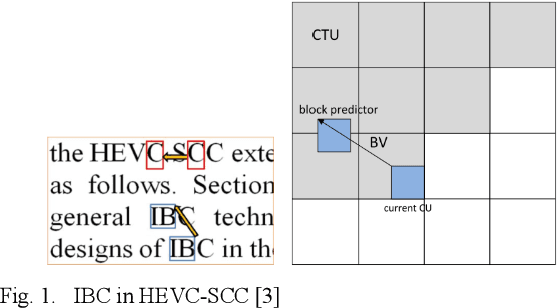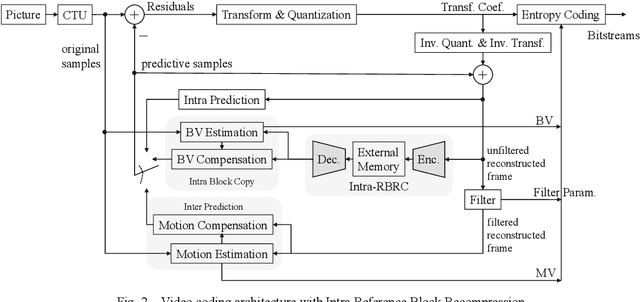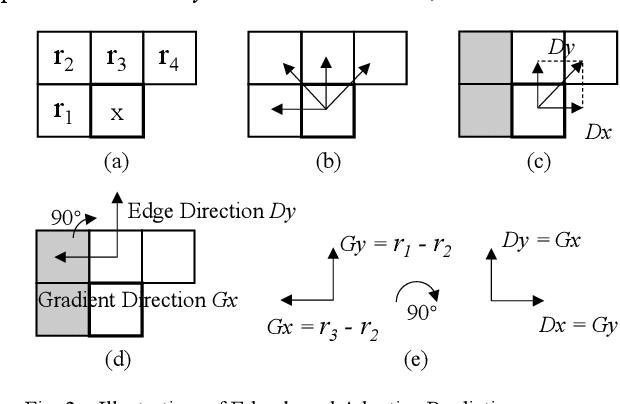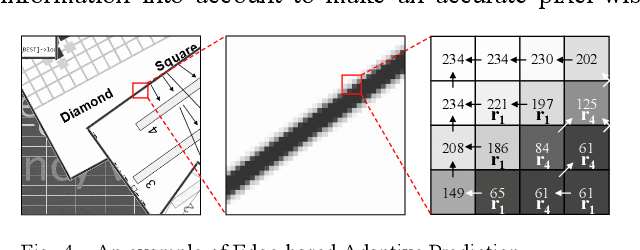Ren Mao
A Lossless Intra Reference Block Recompression Scheme for Bandwidth Reduction in HEVC-IBC
Apr 05, 2021



Abstract:The reference frame memory accesses in inter prediction result in high DRAM bandwidth requirement and power consumption. This problem is more intensive by the adoption of intra block copy (IBC), a new coding tool in the screen content coding (SCC) extension to High Efficiency Video Coding (HEVC). In this paper, we propose a lossless recompression scheme that compresses the reference blocks in intra prediction, i.e., intra block copy, before storing them into DRAM to alleviate this problem. The proposal performs pixel-wise texture analysis with an edge-based adaptive prediction method yet no signaling for direction in bitstreams, thus achieves a high gain for compression. Experimental results demonstrate that the proposed scheme shows a 72% data reduction rate on average, which solves the memory bandwidth problem.
Co-active Learning to Adapt Humanoid Movement for Manipulation
Sep 12, 2016



Abstract:In this paper we address the problem of robot movement adaptation under various environmental constraints interactively. Motion primitives are generally adopted to generate target motion from demonstrations. However, their generalization capability is weak while facing novel environments. Additionally, traditional motion generation methods do not consider the versatile constraints from various users, tasks, and environments. In this work, we propose a co-active learning framework for learning to adapt robot end-effector's movement for manipulation tasks. It is designed to adapt the original imitation trajectories, which are learned from demonstrations, to novel situations with various constraints. The framework also considers user's feedback towards the adapted trajectories, and it learns to adapt movement through human-in-the-loop interactions. The implemented system generalizes trained motion primitives to various situations with different constraints considering user preferences. Experiments on a humanoid platform validate the effectiveness of our approach.
 Add to Chrome
Add to Chrome Add to Firefox
Add to Firefox Add to Edge
Add to Edge